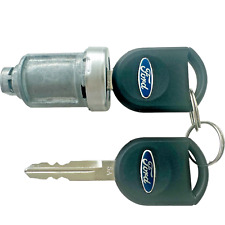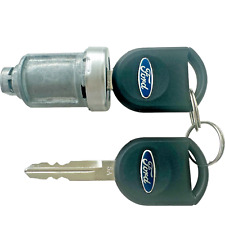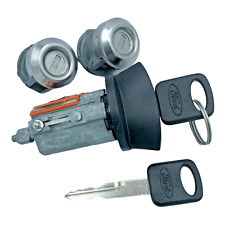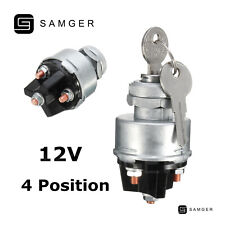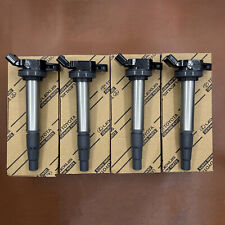BMW’s Spartanburg plant to increase production capacity by 50% by 2011

During an event to celebrate the new 2011 BMW X3 and the opening of a new 1.2 million square feet BMW manufacturing facility in Spartanburg, South Carolina, BMW Group CEO Dr. Norbert Reithofer said that the plant’s expansion completes the company’s $1 billion investment in the U.S. market between 2008 and 2010.
“The U.S. will remain the world”s largest premium market for the foreseeable future and we intend to participate in the expected growth with the expansion of our activities here,” said Reithofer. “Our investments, the creation of new jobs and our active involvement in local communities are proof of our deep commitment to the U.S. and its people and we will continue on this path into the future.”
Click here for more news on the BMW X3.
Reithofer said that BMW wants to remain one of the best-selling European luxury brands in the U.S. market. The automaker sold 18,228 vehicles in Sept. 2010 with year-to-date sales came in at 157,465 – an increase of 9.2 percent.
A total investment of $750 million has prepared the Spartanburg plant to produce new X3 SUV. The investment will increase production capacity at the plant by 50 percent from 160,000 units to 240,000 by 2011.
It was reported yesterday that BMW is close to green-lighting the X4 crossover for production, which could be produced at Spartanburg with the new increase in production capacity.
Click through for the press release.
2011 BMW X3:
Press Release:
BMW Group Commitment in America Continues
Growth of premium segment expected; Production confirmed to increase by 50% to 240,000 units; Company has invested US$ one billion between 2008 and 2010; New BMW X3 sets new U.S. benchmark for built-to-order manufacturing
Spartanburg, South Carolina. In a program to celebrate the opening of the new 1.2 million square feet BMW manufacturing facility in Spartanburg, South Carolina, BMW Group Chairman Dr.-Ing. Norbert Reithofer announced the plant expansion completes the company”s one billion US dollar investment in the U.S. market between 2008 and 2010.
According to Reithofer, the BMW brand wants to remain the best-selling European premium brand in the U.S. In September 2010, the BMW brand in the U.S. reported sales of 18,228 vehicles (+21.1 percent) and a year-to-date sales volume of 157,464 vehicles, up 9.2 percent.
US$ 750 million of the total investment plan have been used to prepare Plant Spartanburg to produce the all-new BMW X3 and included construction of a new assembly hall for the BMW X3 and expansion of the Body and Paint Shops for higher production capacities. As a result, Spartanburg”s production capacity is set to increase by 50% from 160,000 to 240,000 units by 2011.
Since the start-of-production at the Spartanburg plant in September 1994 more than 1.6 million BMW vehicles have been manufactured for customers around the world and total capital investment now amounts to US$ 4.6 billion.
To support the increased production, a total of 1,600 new jobs are being created with about 1,000 already hired and another 600 to be hired by the end of the year. The total number of jobs at the plant will increase to 7,600 by the end of the year.
The balance of the US$ one billion investment was used to expand and modernize BMW Group”s U.S. headquarters campus in New Jersey and to build two new regional distribution centers in the Northeast and Midwest in 2008 and 2009.
Largest vehicle exporter from the U.S. to non-NAFTA markets
Since the inception of the plant in the early 1990s, BMW Group has played a leading role in helping establish America”s Southeast as a new center of the automotive industry in the U.S. With the start of production of the new BMW X3 and the already established and successful manufacturing of the BMW X5 and X6, Plant Spartanburg has become the company”s new primary X-model competence center. All three BMW models are manufactured exclusively at Spartanburg for North American and global customers. More than 70 percent of Spartanburg”s production is exported to world markets making BMW the largest automotive exporter from the U.S. to non-NAFTA countries.
“The South Carolina economy is growing with the help of BMW”s U.S. operations,” said Senior U.S. Commerce Department Official Rick Wade. “The plant”s success in exporting supports President Obama”s National Export Initiative, which aims to double exports in the next five years in support of several million U.S. jobs.”
In designing Spartanburg as a world plant instead of a transplant, the BMW Group made a decision with long-lasting effects for the plant and on the American economy. Beginning with production of the Z3 Roadster in 1995, Spartanburg has been a net exporter of vehicles.
New standards for customer orientation, production processes, logistics and clean production
The flexible assembly processes of the BMW X3 coupled with just-in-time parts management means that customers can have their X3 tailor-made to their own specifications. Familiar to European customers, built-to-order is a relatively new concept for the U.S. market. The assembly hall for the new X3 was designed for maximum production flexibility to accommodate individualized production in the shortest possible time. In the U.S. that will mean customers can modify specifications of their new X3 and make changes to their order until six days before production of the particular vehicle begins.
The BMW Spartanburg plant was designed to be state-of-the-art in its environmental compatibility and the commitment to clean production has been furthered in the current expansion. Advanced manufacturing processes have already reduced water consumption by about 30 percent and achieved a 12.5 percent decrease in waste sent to landfill in 2009 vs. 2008.
The introduction of the new Integrated Paint Process (IPP) alone has meant a significant improvement in both the environmental and productivity categories and has reduced the energy consumption of the paint shop by 30 percent, carbon emissions by 43 percent, and Volatile Organic Chemicals (VOCs) by seven percent. At the same time, IPP has reduced the process time required for each vehicle resulting in a 40 percent productivity increase.
Local economy benefits from Plant Spartanburg
The opening of the BMW plant in Spartanburg in 1994 began a new era for the company, for the state of South Carolina and for the Southeast region. The sixteen years of production that started on September 8, 1994 established BMW as the first European auto manufacturer to build and successfully operate an automotive plant in the U.S. The plant itself has become an anchor in the region and a new pillar of the automotive industry in the U.S.
According to studies by the University of South Carolina, BMW has played a major role in the region”s economy and is directly and indirectly responsible for 23,000 jobs in South Carolina alone. This includes employment at the factory, among suppliers, and in the general economy. All together, the jobs supported by BMW generate 1.2 billion US dollars in annual wages and salaries. “Based on a multiplier that every job at BMW results in more than three other supporting jobs, BMW”s announcement to create 1,600 jobs could mean over 5,000 additional jobs in South Carolina”, said Clemson University economist Bruce Yandle. “In total, the new hires are large enough to decrease the unemployment rate by one percentage point in Upstate South Carolina.”
– By: Zain Haq


